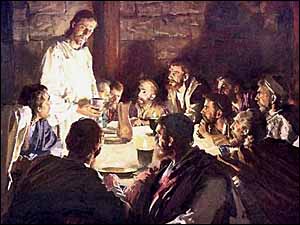Free E-Mail
Bible Studies
Beginning the Journey (for new Christians). en Español
Old Testament
Abraham
Jacob
Moses
Joshua
Gideon
David, Life of
Elijah
Psalms
Solomon
Songs of Ascent (Ps 120-135)
Isaiah
Advent/Messianic Scriptures
Daniel
Rebuild & Renew: Post-Exilic Books
Gospels
Christmas Incarnation
(Mt, Lk)
Sermon on the Mount
(Mt 5-7)
Mark
Luke's
Gospel
John's Gospel
7 Last Words of Christ
Parables
Jesus and the Kingdom
Resurrection
Apostle Peter
Acts
The Early Church
(Acts 1-12)
Apostle Paul
(Acts 12-28)
Paul's Epistles
Christ Powered Life (Rom 5-8)
1 Corinthians
2 Corinthians
Galatians
Ephesians
Vision for Church
(Eph)
Philippians
Colossians,
Philemon
1
& 2 Thessalonians
1 & 2 Timothy,
Titus
General Epistles
Hebrews
James
1 Peter
2 Peter, Jude
1, 2, and 3 John
Revelation
Revelation
Conquering Lamb of Revelation
Topical
Glorious Kingdom, The
Grace
Great Prayers
Holy Spirit, Disciple's Guide
Humility
Lamb of God
Listening for God's Voice
Lord's Supper
Names of God
Names of Jesus
Christian Art
About Us
Podcasts
Contact Us
Dr. Wilson's Books
Donations
Watercolors
Sitemap
 Harry Anderson (1906-1996), 'Last Supper,' oil on canvas. |
- The Synoptic Gospels seem to clearly place the Last Supper as a Passover Meal on Thursday night (Mark 14:12; Luke 22:15).
- John's Gospel -- to many scholars -- puts the Last Supper on Wednesday night, the day before Passover, due to seven verses: John 13:1, 27; 18:28; 19:14, 31, 36, 42.
There are several ways commentators have dealt with this seeming lack of harmony.
- Accept John's chronology as true, dismissing the Synoptic dating as self-contradictory.
- Accept the Synoptic chronology as true, dismissing John's dating as an historical anomaly in order to gain a theological point of Jesus being the true paschal lamb.[387]
Neither of these approaches are acceptable to most evangelicals, who hold to the historical accuracy of the New Testament. Which leaves us two other explanations.
-
Accept both as possible due to disputes in calendars in the first century.
- Accept the Synoptic chronology as correct, but assert that John's Gospel, rightly interpreted, doesn't contradict this chronology.
We'll consider the arguments for these last two explanations for this difficult question, though it is important to understand that these are possible explanations only. We shouldn't be dogmatic on this point. For details, see the commentaries.
Calendars in the First Century
Essentially, this approach holds that there was some dispute among the Jews concerning the calendar, and that John and the Synoptics are using different calendars. With this approach, Marshall concludes that Jesus held a Passover meal earlier than the official Jewish date, and that he was able to do so as a result of calendar differences among the Jews. John makes use of a different calendar than the Synoptic writers to make the point that Jesus was crucified at the very time the Passover victims were slain in the temple. There is evidence of a calendar dispute between the Pharisees and Sadducees. As well there is evidence of a priestly calendar that we see in the Book of Jubilees, and the more usual one.[388]
Interpreting Carefully the Relevant Verses in John
Another approach to harmonization involves a careful interpretation of the seven verses on which John's chronology hinges. Here is how Carson interprets these verses.[389]
13:1 "It was just before the Passover Feast. Jesus knew that the time had come for him to leave this world and go to the Father." (Prior to Jesus washing the disciples' feet.) Taking this verse as the heading to chapters 13-17, would lead one to assume that the meal they're about to partake of is not the Passover meal. But if you take 13:1 to refer to the footwashing only, then the footwashing is placed before the Passover meal about to begin.[390]
13:27-29 "As soon as Judas took the bread, Satan entered into him. "What you are about to do, do quickly." ... Some thought Jesus was telling him to buy what was needed for the Feast, or to give something to the poor." (After Jesus washed the disciples' feet.) Some take this command to go out into the night to do something as evidence that this preceded the Passover meal, but this isn't convincing. "The Feast" could well refer to the Feast of Unleavened Bread that was about to begin.[391]
18:28 "Then the Jews led Jesus from Caiaphas to the palace of the Roman governor. By now it was early morning, and to avoid ceremonial uncleanness the Jews did not enter the palace; they wanted to be able to eat the Passover." One can interpret "eat the Passover" to refer, not to the Passover Meal itself, but the hagigah, the feast-offering offered on the morning of the first full paschal day (Numbers 28:18-19). We know that "the Passover" could refer to the combined feast of the paschal meal itself plus the ensuing Feast of Unleavened Bread, as in Luke 22:1.[392]
19:14 "It was the day of Preparation of Passover Week, about the sixth hour. 'Here is your king,' Pilate said to the Jews." (During Jesus' trial before Pilate). "Day of Preparation" is ambiguous. It could refer to the day before Passover. But it could also refer to the usual sense of Preparation (paraskeuē) Friday, preparing for Sabbath which begins Friday night. This interpretation would allow for Passover on a Thursday night, and Jesus' crucifixion on Friday.[393]
19:31 "Now it was the day of Preparation, and the next day was to be a special Sabbath. Because the Jews did not want the bodies left on the crosses during the Sabbath, they asked Pilate to have the legs broken and the bodies taken down." (After Jesus' death, when the soldiers pierced him in the side.) A "special Sabbath" would refer to Saturday, the day after Jesus' crucifixion, which was not only a Sabbath, but special because the second paschal day was devoted to the very important sheaf offering (Leviticus 23:11).[394]
19:36 "These things happened so that the scripture would be fulfilled: 'Not one of his bones will be broken.'" (After Jesus' death, when the soldiers pierced him in the side.) John's emphasis is that Jesus is the Passover Lamb. The quotation could be either from Exodus 12:46 or Numbers 9:12, regarding the Passover lamb. But it could also refer to Psalm 34:20 describing God's care for the righteous man (cf. Luke 23:47). This verse isn't decisive for the chronology of Holy Week.[395]
19:42 "Because it was the Jewish day of Preparation and since the tomb was nearby, they laid Jesus there." This would refer to the same day of Preparation as in 19:31, commented on above.
 Entire study is available in paperback, Kindle, and PDF formats. |
 Entire study is available in paperback, Kindle, and PDF formats. |
Harmonization of John and the Synoptics is not without its problems. But to those of us who believe in the accuracy and historicity of the New Testament, it is important.
Note: Each Easter season I have people e-mail me to attack my traditional chronology of Holy Week, with the Lord's Supper/Passover on Thursday night and the crucifixion on Friday. But I don't think the alternative chronology they offer is nearly as convincing.
Endnotes
[387] This seems to be the conclusion of the extensive discussion in Joachim Jeremias, Arnold Erhardt (translator), The Eucharistic Words of Jesus (Oxford: Basil Balckwell, 1935, 1949; translated 1955), pp. 1-60.
[388] I. Howard Marshall (Last Supper and Lord's Supper (Eerdmans, 1980), pp. 57-75) considers various approaches in length, and concludes that different calendars is the best approach to harmonization. Also Morris, John, "Additional Note H: Last Supper and Passover," pp. 774-786.
[389] Beasley-Murray (John, pp. 225) discusses the problems and shows interest in Bultmann's harmonization along the lines of Carson's, but sees the need for "further patient investigation of the traditions behind the Last Supper...."
[390] Carson, John, pp. 460-461.
[391] Carson, John p. 475.
[392] Carson, John, pp. 588-590.
[393] Carson, John, pp. 603-604.
[394] Carson, John, p. 622-623.
[395] Carson, John, p. 627.
Copyright © 2025, Ralph F. Wilson. <pastor![]() joyfulheart.com> All rights reserved. A single copy of this article is free. Do not put this on a website. See legal, copyright, and reprint information.
joyfulheart.com> All rights reserved. A single copy of this article is free. Do not put this on a website. See legal, copyright, and reprint information.
 |

|
In-depth Bible study books
You can purchase one of Dr. Wilson's complete Bible studies in PDF, Kindle, or paperback format -- currently 48 books in the JesusWalk Bible Study Series.
Old Testament
- Abraham, Faith of
- Jacob, Life of
- Moses the Reluctant Leader
- Joshua
- Gideon
- David, Life of
- Elijah
- Psalms
- Solomon
- Songs of Ascent (Psalms 120-134)
- Isaiah
- 28 Advent Scriptures (Messianic)
- Daniel
- Rebuild & Renew: Post-Exilic Books
Gospels
- Christmas Incarnation (Mt, Lk)
- Sermon on the Mount (Mt 5-7)
- Luke's Gospel
- John's Gospel
- Seven Last Words of Christ
- Parables
- Jesus and the Kingdom of God
- Resurrection and Easter Faith
- Apostle Peter
Acts
Pauline Epistles
- Romans 5-8 (Christ-Powered Life)
- 1 Corinthians
- 2 Corinthians
- Galatians
- Ephesians
- Philippians
- Colossians, Philemon
- 1 & 2 Thessalonians
- 1 &2 Timothy, Titus
General Epistles
Revelation
Topical
